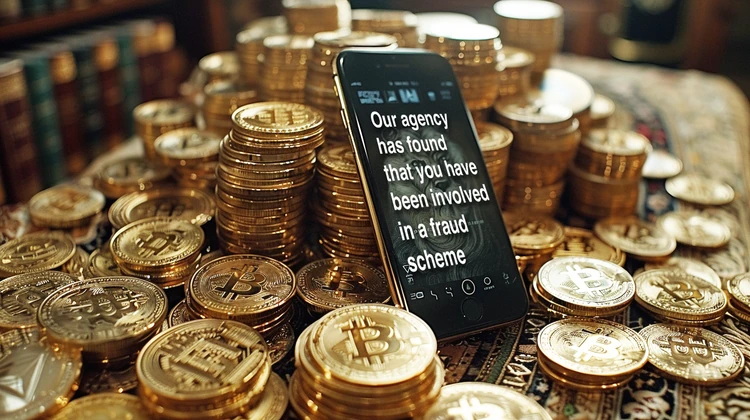Move over, gift card scams. There’s a new bad actor in town: federal agency impersonators and their Bitcoin ATM scams.
The FTC has gotten so many complaints about the con job that it’s gone on full-tilt offense to try and protect any more consumers from getting robbed.
The angle the scammers are taking is an impersonator one – specifically, any number of government agencies where they try to get you to bite on their pitch. The usual pitch is that there’s been some sort of “fraudulent activity” the “agency” has noticed and to protect you and secure your money, you need to deposit X number of dollars into a Bitcoin ATM.
“Problem solved? Not even close,” says Jennifer Leach in the FTC’s Division of Consumer and Business Education. “That’s because neither Bitcoin nor the ATM will protect your money. In fact, no cryptocurrency will. No matter what the caller says, there’s no such thing as a government Bitcoin account or digital wallet.There are no Bitcoin federal safety lockers. And only a scammer will give you a QR code to ‘help’ you deposit your life savings in a Bitcoin ATM.
They’ll tell you anything
Scammers are natural-born liars. They’ll tell you anything they think will sway you their way and there’s no better example than the “gotta act now” element in this scam.
And, frankly, it doesn’t matter how smart you think you are, if someone can convince you that your money is at risk, you might listen.
But, the turning point – as is the case in other imposter scams like the grandparent one – is that they’ll try and scare you into keeping it a secret — down to your spouse, your children, your BFF.
“Once they have you alarmed and alone, they’ll give you the solution to the problem they just created: ‘protect your money by moving it.’ And that’s when they’ll send you to a Bitcoin ATM to ‘secure’ your money,” Leach reminds consumers.
Here's how this scam recently played out in northern Virginia.
“What they’re doing is trying to rush you into something you can’t reverse: giving your money to a scammer. So, if you get a call like this, remember this…”
Never move or transfer your money to “protect it.” Your money is fine where it is, no matter what they say or how urgently they say it.
Worried? Call your real bank, broker, or investment advisor. Use the number you find on your account statements. Don’t use the number the caller gives you. That’ll take you to the scammer.
“Could you share this post with one person today?,” Leach asks ConsumerAffairs readers. “Scammers love this approach right now. But if we all tell one person, and they tell one person, we can make sure more people know how to stop this scam. Their life savings will thank you.”
